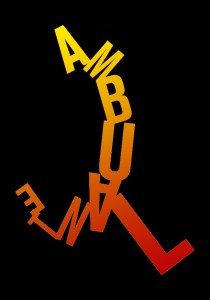Mexican film festival debuts in Los Angeles
The AMBULANTE Film Festival, which made its American debut in Los Angeles, is not the average festival. AMBULANTE’s American appearance spanned two days (Saturday and Sunday) and included two films per day.
Diego Luna — actor, director and co-creator of AMBULANTE — stressed AMBULANTE’s excitement and intrigue.
“[AMBULANTE] is more of a tour,” Luna said. “More like a rock tour.”
“Ambulante” in English means “peddler,” and that’s just what the festival is. Traveling around for three months, the film festival typically stays for a week in each state in Mexico. Over the weekend, the festival paid a special visit to Los Angeles.
As Ricardo Giraldo, director of the AMBULANTE Film Festival, said, “We project on walls, in plazas, churches, prisons as well as commercial cinemas.”
Projecting on walls? That’s already a far cry away from the glitz and glamour of other festivals like Cannes and Sundance.
AMBULANTE is also rare in that the films are not shown in competition with one another and are instead a cultural collection put together simply for the purpose of enjoying art — and in the case of Los Angeles, foreign, cultural art.
In addition to these oddities, AMBULANTE does not show fiction films; instead, the festival only opts for documentaries, allowing viewers to encounter stories from around the world.
Touching on the large population of Mexicans living in Los Angeles, Luna said, “It makes total sense to be here.”
USC seemed like a natural choice as well; after speaking with Luna, Annenberg Professor Josh Kun worked with Visions and Voices and AMBULANTE’s organizers to bring the Mexican festival here for its American debut.
The festival’s first film, The Two Escobars, directed by Jeff and Michael Zimbalist, served as the perfect cultural introduction.
This heart-pounding thriller dives into the world of narco-soccer (the juxtaposition of drug money and soccer) in Colombia in the ’80s and ’90s. The Two Escobars tells the story of Pablo Escobar, a famous drug trafficker and murderer, and Andrés Escobar, a star member of the Colombian national soccer team.
The film is a fascinating commentary on a lifestyle so different from those of Americans or American residents. The film insinuates that sports in the United States are reserved for those ardent fans, while in Colombia, everyone is a fan and a lost game is the end of the world.
Michael Zimbalist followed, discussing how the film’s fascinating subject and story made him and his brother initiate the project.
2010’s Benda Bilili!, directed by Renaud Barret and Florent de la Tullaye, was another of the film festival’s highlights.
Telling the story of a group of disabled seniors coming together to make a band in the Congo, Benda Bilili! is the ultimate symbol of light in a world of darkness.
And although the underdog film sounds hackneyed, one can’t help but root for the seniors in the end.
The second day’s festivities commenced with a panel discussion, “Documentaries Without Borders,” where Josh Kun, Diego Luna, Michael Zimbalist, Lucas Marcheggiano and Florent de la Tullay discussed topics such as the evolution of the documentary, the fiction adoption of the “documentary-style” and the importance of Mexicans viewing their own stories. The panel was successful in that it showed the significance of cinematic media’s ever-changing approaches to crafting stories and the rewards of embracing a culture’s history.
Next screened was a film from 2009, El Ambulante, directed by Eduardo de la Serna, Lucas Marcheggiano and Adriana Yurcovich.
The movie follows filmmaker Daniel Burmeister, who traveled from village to village in Argentina and offered to make a movie with Argentinian townspeople, free of charge (in exchange for room and board). Attendees ate El Ambulante up.
The festival ended on a poignant note with a screening of Tatiana Huezo’s El Lugar Más Pequeño, introduced by Ricardo Giraldo as “something close to a masterpiece.”
Covering the civil war that plagued El Salvador, the film captured the darkness within a village called Cinquera. Haunting, beautiful, startling and all things in between, El Lugar Más Pequéno helped the audience see the harsh realities of the world, such as kidnapping, murder, disabilities and homelessness.
Yet the tenacity to not give up remains in the film.
As Andrés Escobar says right before his murder: “Life doesn’t end here.”

Comments are closed.